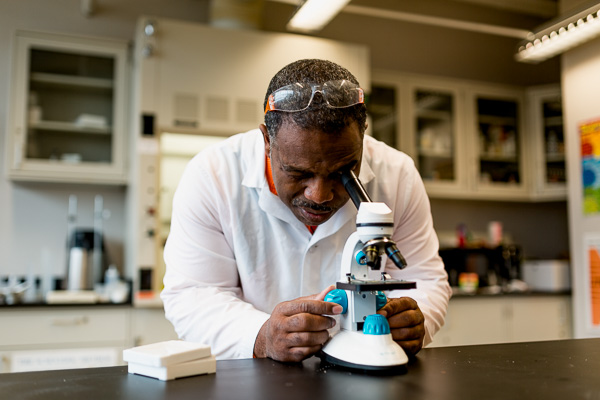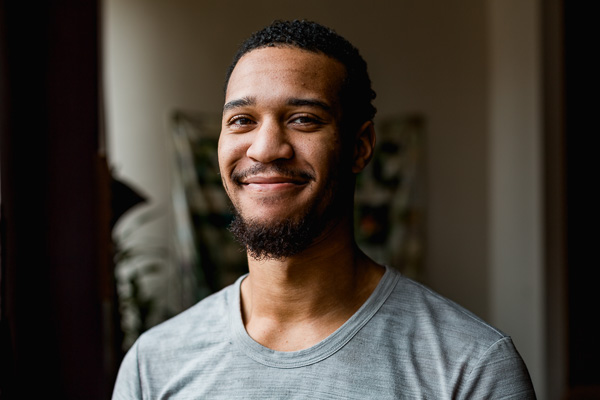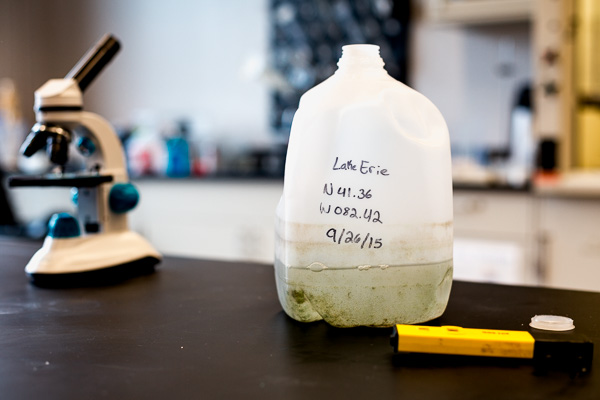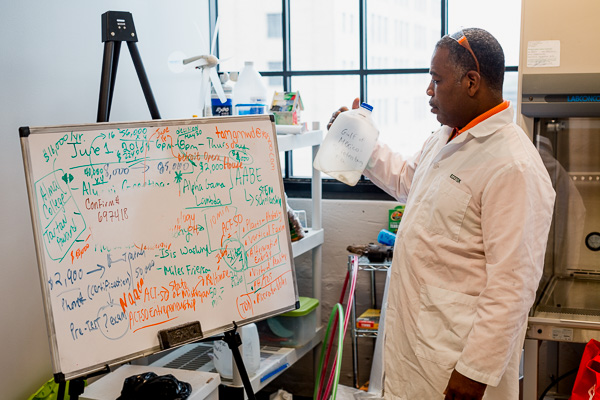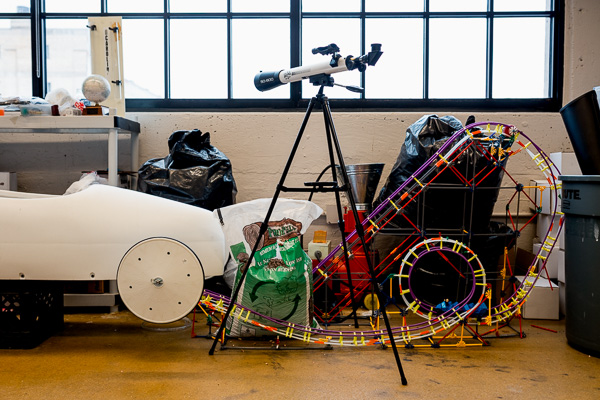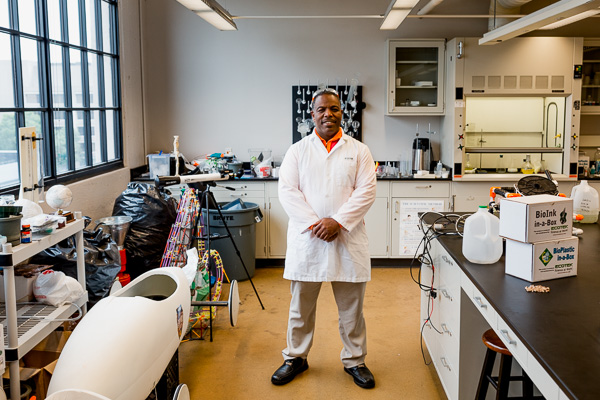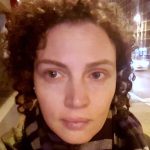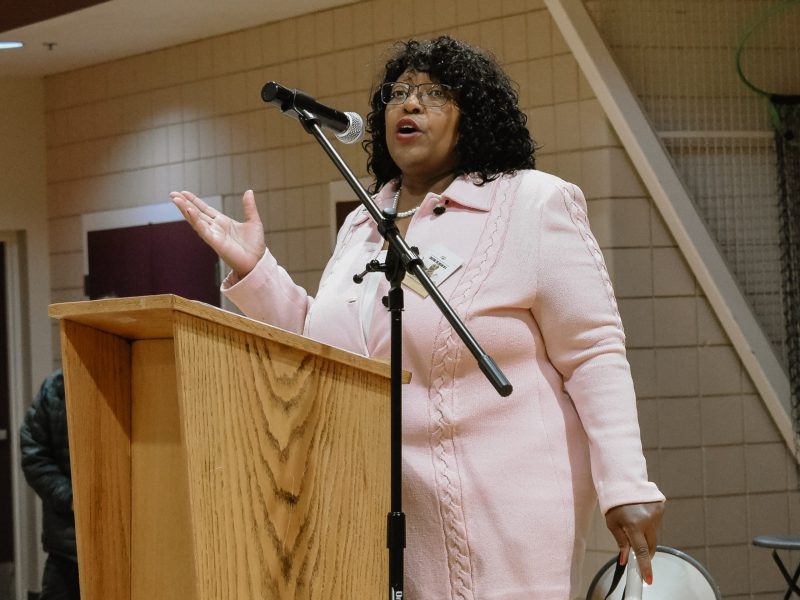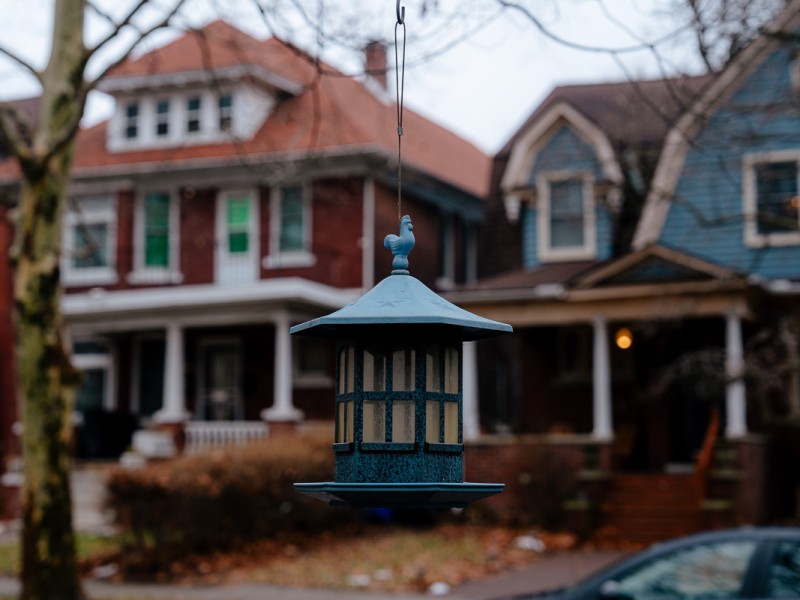Detroit youth harness science to create homegrown solutions to neighborhood problems
Thanks to mentorship from several forward-thinking organizations from around the city, a small but growing population of students are ready to tackle the problems of today and tomorrow through the power of science.
Detroit was once a city at the forefront of technology. But years of economic decline, and a shift in the prevailing U.S. market from industrial engineering and manufacturing to environmental management and computing, have left a lot of young Detroiters lacking the hard science skills they need to enter STEM fields.
A handful of forward-thinking organizations from around the city, however, are working to close the gap for students passionate about the sciences, and create an entry point for those who struggle to keep up. The result: a small but growing population of students ready to tackle the problems of today and tomorrow by harnessing the power of science.
Bryan Lewis, program director for Youth Energy Squad (YES), an offshoot of the sustainable development nonprofit EcoWorks, says the organization grew out of a need to increase energy efficiency and reduce bills in low-income homes. Over time, the program has grown to encompass not just energy, but wider sustainability and social justice issues in Detroit.
And it’s had even more benefits than that. “We noticed that by teaching young people to perform weatherizations and home energy audits, we could both create opportunities for youth and solve a real environmental need,” says Lewis.
YES began working with Detroit Public Schools in 2012. To date, according to the organization, YES has engaged 5,000 Detroit students in over 60 schools, collectively saving nearly $3 million in electricity and water bills.
YES not only promotes ideas of energy efficiency, but models efficiency in its process, which capitalizes on the existing interests of students to promote ideas of applied science, engineering, and environmental justice.
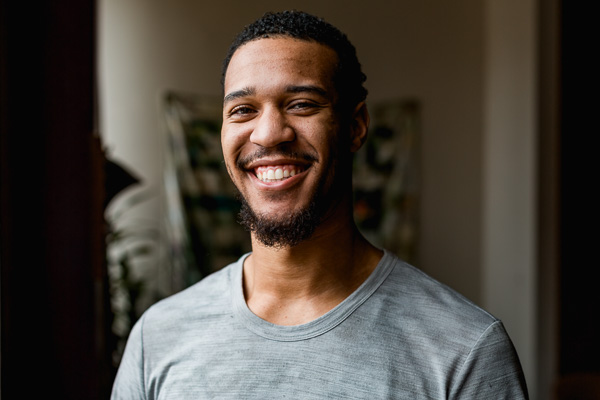
“Science is in everything that we do,” says Lewis. “From sustainability to community development, we need young people to be armed with the resources to solve the issues of today and tomorrow. Chemistry governs our air quality and math is used to measure energy use and savings—even behavioral science is used to underpin community development and relationship building. If we are able to engage young people in STEM projects where they discover these unique skills for themselves, they are more likely to continue to create as their curiosity grows.”
One way YES programming plays out around schools is through a high school Capstone Program, which enables dedicated Green Teams to secure funding for a project that addresses a sustainability issue in their community. Students work with community partners and relevant industry experts to create and shape a project they can use to address local issues.
This year, 10 DPS high schools are participating in the Capstone Project program. The team at Renaissance High School is engaged in an ambitious, multi-year project, headed up by Green Team co-president and Renaissance senior Sasha Burts.
“This year we’re doing a school-wide recycling center,” says Burts. The idea was inspired by Dave Hackins, an inventor from Holland who developed an idea of Precious Plastic, a blueprint for making small recycling machines.
The Green Team is collaborating with the school’s Robotics Team to build four machines: a shredder, a compressor, an extrusion, and an intrusion melter, which helps to transform plastic waste into new forms that have new uses.
“The intrusion machine melts the plastic and turns it into filament that we can use to create things,” says Burts. The first of these machines debuted at the final presentation of the Green Team’s efforts this May.
Getting students to use the machines, however, created new problems. “Currently people aren’t very interested in recycling and don’t care about it,” says Burts. “So we decided as part of changing the culture to do guerilla marketing.”
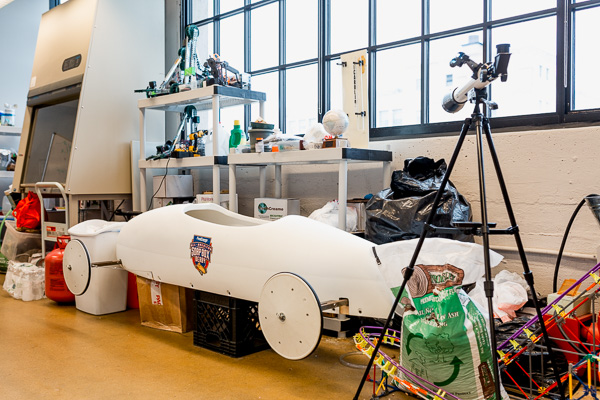
The Green Team collaborated with the Fashion Club to enter some plastic designs into the annual school fashion show this March. They produced a half-dozen different student designs, using plastic recyclables as their materials.
Burts has been part of the Green Team for two years, and will leave the project-in-progress in the hands of the team’s junior members as she matriculates this year and heads to Michigan State University to study environmental engineering. Siblings David and Britteny Okorom will carry on the project, including recruiting new science enthusiasts for the team.
“I know people who are coming from FLICS (the neighboring middle school) who are excited about science, so I’m going to try to snag some of them up,” says Okorom. But he worries that it will be difficult to find students with an appetite for science.
Keith Young, founder of Ecotek Lab in the city of Detroit, shares these concerns.
“The passion and cultural alignment for science and math in the city of Detroit is low,” said Young, in an email interview. “Not much is being done to drive up innovation or the rigor of STEM instruction in K-12 for people living in Detroit. Most of the discussion involves reestablishing the old way of doing things with outside investment focused on a small geographical footprint of the city.”
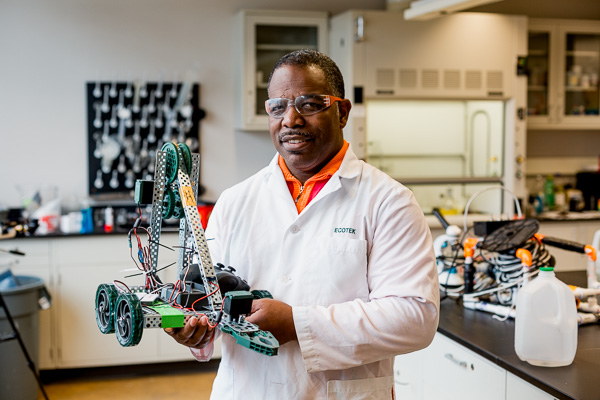
Ecotek Lab is a research facility that invites 5th to 12th grade students to develop projects in four major areas: material science, alternative energy, biotechnology, and environmental science. The students work closely with Young in the lab and in the field, developing solutions to real-world problems, like climate change.
The lab was created, in part, because of steep declines in science proficiency among Detroit students. “STEM innovation is driven by initiative, long term vision, dedicated participation by all stakeholders, steady investment, and high expectations,” said Young. “The expectations for STEM innovation in Detroit has to be reset.”
In spite of his skepticism about the general state of STEM study in Detroit, Young can point to some prominent successes coming out of Ecotek Lab. This year, five of his graduating seniors are heading to college, including Demarius Clemons to the University of Michigan and Bria Harris to Purdue University. Additionally, two 10th graders have launched companies out of Ecotek: a vertical farming project by Miles Frierson and a virtual reality system by Isis Washington.
“Last week Isis visited with world leaders at the United Nations to discuss the application of her virtual reality innovations on a global scale,” said Young. He also has four Ecotek Lab alumni graduate from college this summer in STEM fields.
With champions like Young and Lewis, there is hope for the future of STEM studies in Detroit. But according to both, there’s still a need for major systemic investment and a shift in cultural attitudes about study-intensive science fields. The Ecotek alums and Go Green Challengers are leading the way—it’s time to focus our energy on widening the path they are blazing.
This article is part of a series on the state of STEM education and workforce development in Detroit. It is underwritten by the Michigan Science Center. Read more articles in the series here.
All photos by Nick Hagen.
